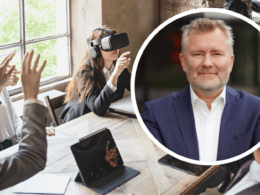Decision-makers in companies are slowly but surely recognising the potential of serious & applied games. Games that are not only fun but also impart knowledge are becoming increasingly popular - also in Switzerland.
The Federal Council also thinks gaming is great: it wrote in a report in March that the games could be used for educational and therapeutic purposes or for training - especially in the military.
Games can therefore not only be fun, but also informative and educational. Experts know the term "serious games" or "serious & applied games", as the Zurich University of the Arts (ZHdK) calls them. In the field of the same name, the ZHdK deals with the function and effect of games in a cultural or scientific context. The pharmaceutical industry, energy and power companies, media companies and universities are particularly interested in serious games and the topics of participation and gamification.
What makes a good serious game
"You don't feel bored or overwhelmed by a 'good' serious game," says Philomena Schwab, co-founder of Swiss game company Stray Fawn Studio. In Switzerland, for example, serious games are developed by the Bruges-based company Koboldgames. "A good serious game should be fun, increase motivation and ensure a transfer of knowledge," says co-founder Yasemin Günay. "Gameplay and learning are interwoven and should form a flow." In commissioned work, however, the player is not the client. Therefore, despite the client's instructions, one should never lose sight of the target group's wishes. "A serious game is often a customised product," Günay continues.
Gamers on the carpet
"We are noticing an increasing interest in using games as a medium in everyday situations," says Günay. This probably also has to do with the fact that more and more decision-makers in companies have grown up with games and are therefore open to the medium. In addition, companies increasingly understand how to present their brands innovatively with the help of games. There are still prejudices against gamers in society, but that is also changing.
Studies show that even more women than men are now gaming - and online with their smartphones. Just think of Candy Crush and these stories. For example, the agency Responsive AG convinced that consumers learn most easily with VR experiences. Patrik Marty, Managing Partner of Responsive, is convinced: "Through the total immersion, i.e. the immersion in this highly detailed 360° world, the experience remains strongly in the memory. We always try to appeal to as many senses as possible and increase the fun with interactions in order to communicate the client's message as effectively as possible. VR is the best instrument to involve people, young and old. Responsive AG is also one of the few companies in Switzerland that is mainly dedicated to the development of highly engaging online and VR promotions.
All beginnings are difficult
"Things are going quite well for us at the moment," Günay replies to the question of how difficult it is to make a living with serious games in Switzerland. However, he says it is very time-consuming to build up a customer base. "It takes a good awareness of potential customers and how to reach them with marketing." And a lot of passion. It also helps to get support right at the beginning. Pro Helvetia, for example, invests a lot in the local game scene, and MMOS receives support from the University of Geneva.
Source: Netzwoche / Media release Responsive









